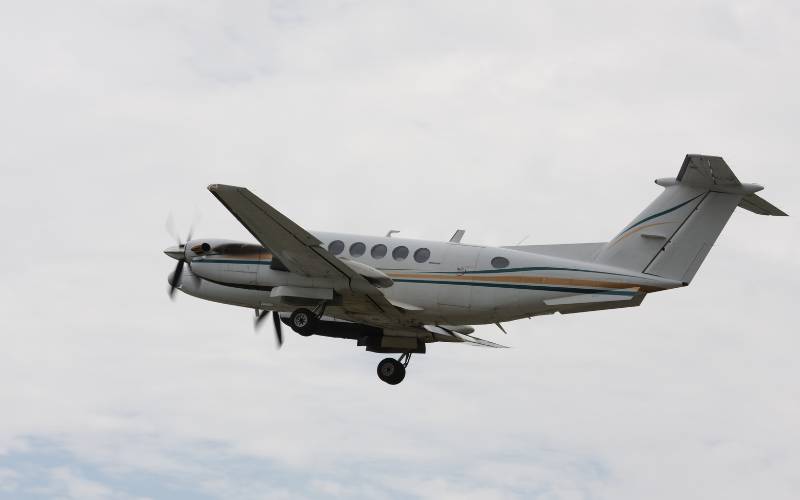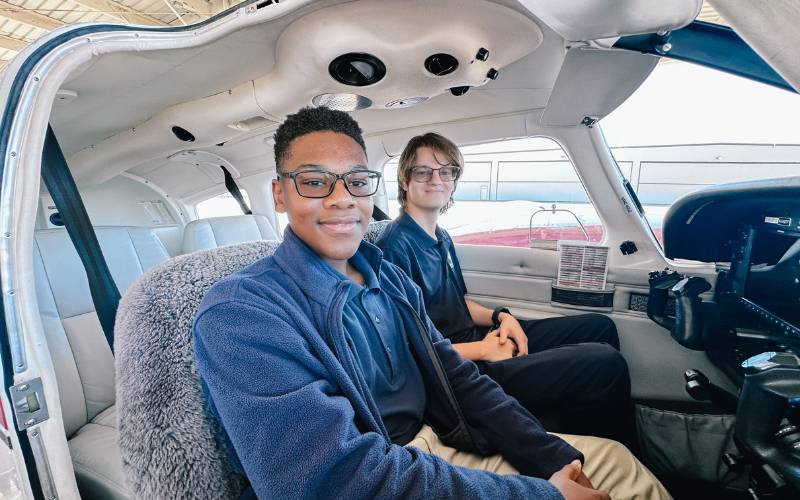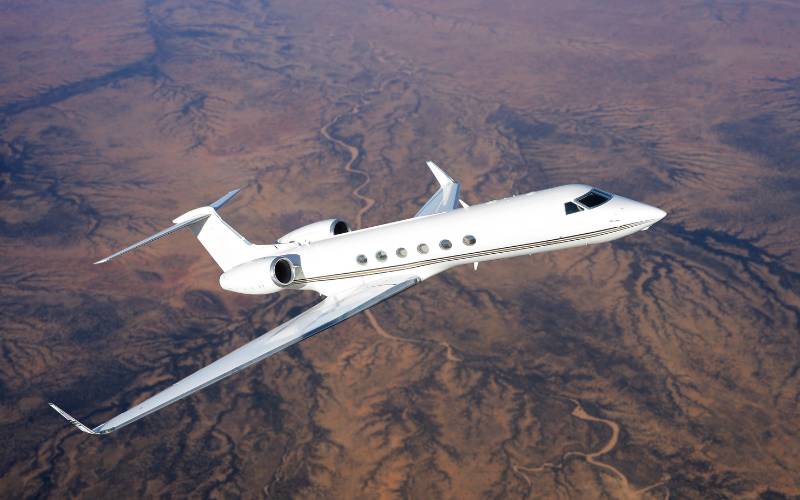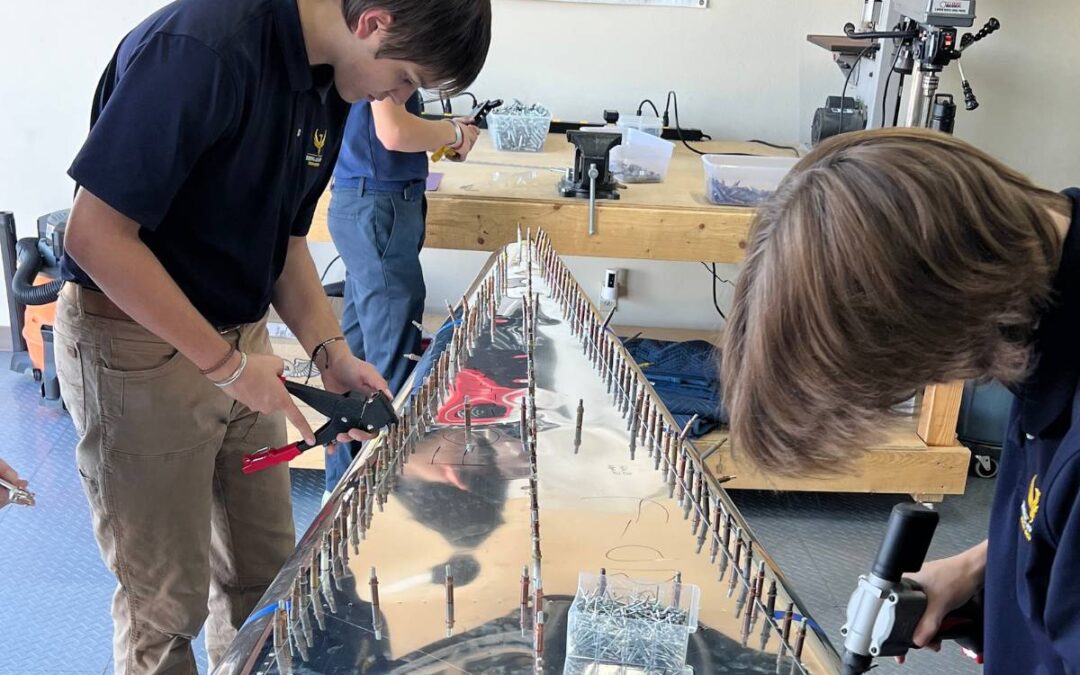Have you ever dreamed of testing cutting-edge aircraft? A career as a flight test engineer might be perfect for you. These skilled professionals play a key role in making sure new planes are safe for people to use.
To become a flight test engineer, you’ll need a bachelor’s degree in aerospace engineering or a related field. You’ll use math and science skills to design test plans, analyze flight data, and solve complex problems.
It’s an exciting job that combines engineering know-how with a love of aviation.
Flight test engineers work for aircraft manufacturers, airlines, and organizations like NASA. You might find yourself running tests on fighter jets for the military or helping develop the next generation of commercial airliners. If you’re passionate about planes and enjoy hands-on work, this could be your dream STEM career.
Let’s take a look at this unique career field.
Role And Responsibilities of a Flight Test Engineer
As a flight test engineer, your main job is to test aircraft systems and make sure they meet safety and performance standards. You’ll design test plans, run tests, and analyze the results.
Your duties include:
- Planning and overseeing flight tests
- Checking aircraft systems and parts
- Making sure planes follow safety rules
- Working with pilots and other engineers
- Writing reports on test results
You’ll use special tools and software to collect and study data from test flights. This helps you spot any issues with how the plane flies or functions.
You’ll often work closely with pilots, mechanics, and other engineers. Good communication skills are key, as you’ll need to explain complex ideas clearly.

Required Education And Skills for Flight Test Engineers
Becoming a flight test engineer requires a strong background in science and math. You’ll need specific degrees and skills to succeed in this field.
Necessary Educational Background And Degrees
To become a flight test engineer, you’ll need a bachelor’s degree in engineering. Aerospace engineering is the most common choice, but mechanical or electrical engineering can also work. Some universities offer specialized programs in flight test engineering.
After your bachelor’s, you might consider getting a master’s degree. This can give you an edge in the job market. Some employers even look for candidates with a Ph.D., especially for research positions.
Your coursework should include lots of math and physics. You’ll also want to take classes in aerodynamics, propulsion, and aircraft systems.
Key Skills And Qualifications Needed
As a flight test engineer, you’ll need a mix of technical and soft skills.
Strong problem-solving abilities are crucial. You’ll often face complex issues that require creative solutions.
Attention to detail is important too. Small mistakes can have big consequences in aviation. You should be comfortable working with complex data and using advanced software.
Good communication skills are also a must. You’ll work in teams with people from a variety of backgrounds and roles. Being able to clearly communicate across the team is critical to completing successful test flights.
Some other important skills include:
- Analytical thinking
- Project management
- Knowledge of flight safety regulations
- Familiarity with aircraft systems and components
Get Ahead by Attending a STEM High School
Starting your journey early can give you a big advantage. Attending a STEM high school can set you on the right path to becoming a flight test engineer.
These schools offer advanced classes in math, physics, and computer science. You might even get to work on cool projects like building actual airplanes like the students in our aircraft maintenance program.
Many STEM high schools have partnerships with universities and aerospace companies. This can give you awesome opportunities for internships or mentorship programs.
If you’re interested in attending a STEM high school reach out to Rising Aviation High School and speak with a member of the admissions team.

Career Path And Advancement
Flight test engineers have exciting opportunities to grow their careers. You can progress from entry-level roles to senior positions and even specialized areas as you gain experience.
Typical Career Progression of a Flight Test Engineer
You’ll start as a junior flight test engineer after earning your degree. In this role, you’ll work under more experienced engineers on test projects. As you build skills, you may move up to a mid-level position in 3-5 years.
Senior flight test engineer roles typically require 7-10 years of experience. At this level, you’ll lead major test programs and mentor junior staff.
With 15+ years of experience, you could become a chief engineer or test director. These top roles involve overseeing all flight testing for an organization.
Employers like Boeing, Airbus, Lockheed Martin, and NASA offer structured career paths for flight test engineers.
Opportunities For Advancement And Specialization
As you progress, you can specialize in areas like:
- Propulsion systems
- Avionics
- Structural testing
- Flight control systems
You might focus on certain aircraft types, like military jets or commercial airliners. Some engineers move into project management roles, leading large test programs.
Advancing your career may involve getting additional certifications or an advanced degree. You could also transition to related fields like systems engineering or software development for aviation.
Consider joining professional organizations to network and stay current on industry trends. This can open doors to new opportunities as your career develops.
Challenges And Rewards
Flight test engineering offers a mix of exciting opportunities and tough hurdles. This career path requires dedication but can be very fulfilling for those who enjoy pushing the boundaries of aerospace technology.
Common Challenges Faced as a Flight Test Engineer
Being a flight test engineer can be stressful at times. You need to stay cool under pressure when testing new aircraft designs. Safety is always the top priority, but you also have to meet tight deadlines.
The work hours can be long and unpredictable. You might have to travel frequently for tests at different locations. This can make it hard to balance work and personal life.
Keeping up with rapidly changing tech is another challenge. You’ll need to constantly learn new skills and systems. Teamwork is crucial, so you must communicate well with pilots, mechanics, and other engineers.

Rewards And Benefits Of Becoming a Flight Test Engineer
Despite the challenges, being a flight test engineer can be incredibly rewarding.
You get to work on cutting-edge aircraft and be part of exciting new developments in aerospace.
The salary range is often quite good. Many flight test engineers earn well above-average pay, especially as they gain experience.
You may have the chance to work with NASA or other prestigious organizations. This can lead to amazing career opportunities and the chance to make real advances in aviation.
Job satisfaction is usually high. You’ll solve complex problems and see the direct results of your work in action. The sense of accomplishment when a new aircraft performs well is hard to beat!
Future Outlook
Flight test engineering is evolving rapidly. New technologies and industries are creating exciting opportunities. You’ll find growing demand for your skills in aerospace and beyond.
Trends And Future Developments In The Field
Flight test engineering is embracing cutting-edge technology.
You’ll work with advanced sensors and data systems to evaluate aircraft performance. Drones are a big focus, needing skilled testers for commercial and defense applications.
Space exploration is opening new frontiers. As a flight test engineer, you might help develop vehicles for space missions. You’ll collaborate with researchers and government agencies on groundbreaking projects.
Virtual and augmented reality are changing how tests are done. These tools let you simulate flights and catch issues early. This saves time and money while improving safety.
EVTOLs are transforming the way we travel and many organizations are launching completely new aircraft designs that will need to be evaluated and tested by flight test engineers.
Job Market Outlook And Demand
The job market for flight test engineers looks bright. Aerospace companies need your skills to develop new aircraft and improve existing ones.
The growing commercial space industry means more opportunities in space vehicle testing.
Defense contractors are hiring flight test engineers for military projects. You’ll help create cutting-edge aircraft and drones for national security.
Your skills are valuable beyond aerospace too. Carmakers, tech firms, and research institutions need testing experts. This gives you lots of career options.
Salaries are strong, with median pay around $110,000. Job growth is steady at about 10% per year which is above average.
You’ll find good prospects in both government and private sectors.





